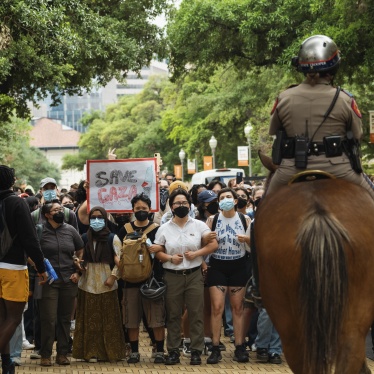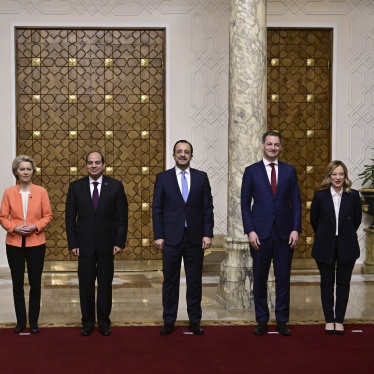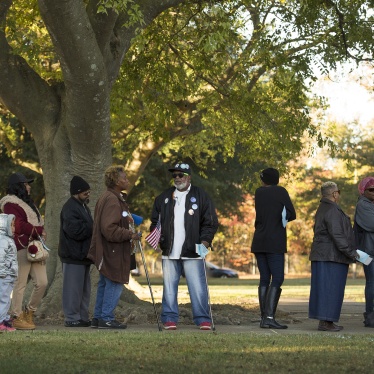Bulent Ecevit's meeting at the White House today, September 28, comes at a critical moment for Turkey. While Turkey's human rights record has improved, many abuses continue.
Yesterday, 170,000 copies of the newspaper Akit ("Contract") were confiscated by Istanbul State Security Court, and legal proceedings were initiated against journalist Abdurrahman Dilipak for his "Open Letter to Mr. Bulent Ecevit, c/o President Clinton, The White House," which contained broad criticisms of the government, and in particular, the headscarf ban. The article contains no incitement to hatred or violence.
Torture continues to be widespread, and writers are still imprisoned, especially if they wrote about certain taboo topics such as the Kurdish minority, the role of the military, or of religion in politics. However, over the last year, the three or four most active illegal armed groups have reduced their attacks, and the biggest, the Kurdish Workers' Party (PKK), suggested it may abandon armed activites and may put an end to its fifteen-year war with Turkish armed forces. The Turkish government must now seize the momentum created by these developments to carry out far-reaching legal reforms and to implement concrete human rights protections.
The question is whether President Clinton will capitalize on the positive environment to press for change in Turkey. In the past, the U.S. has put its strategic relationship with Turkey above human rights.
Mr. Ecevit can already claim some modest achievements. After coming into office in May, his government's first act was to issue an internal memorandum which formally condemned torture and proposed that observers should make unannounced visits to places of interrogation. Earlier this month, a number of journalists had their sentences suspended and were released from prison, and just two days ago, Akin Birdal, one of the country's best-known political prisoners and president of the Turkish Human Rights Association, walked free.
But these measures betray the same hesitancy and equivocation as every other government since the 1980 military coup. After the memorandum, Ecevit did not initiate a program of visits to interrogation centers, nor did he abolish the practice of holding people incommunicado - where they are frequently subject to torture. Last week, journalist Nadire Mater was indicted for "insulting the armed forces" and faces a possible six-year sentence for publishing the memoirs of a group of soldiers who have served in the southeastern part of the country, where the Kurdish minority is concentrated. The military has been fighting the PKK, using brutal methods including the wholesale destruction of villages.
The bans on publishing or broadcasting in the Kurdish language are still in place. Political parties with members drawn from the Kurdish minority, or from the religiously devout, have been suppressed. Women may not wear a headscarf in government offices, courts and universities, because it is considered a political statement favoring Islam.
The Turkish military is not giving Mr. Ecevit much room to maneuver on these issues. The Chief of General Staff of the Turkish armed forces recently said the military would fight separatism and political Islam "for a thousand years, if necessary." The military is still the overriding force in Turkish politics.
Human rights problems are a live issue in the United States' relations with Turkey. Harold Koh, Assistant Secretary of State for Democracy, Human Rights and Labor, visited Turkey in August, and conveyed two priorities for human rights reform: implementing safeguards against torture, and reforming laws which restrict freedom of expression both for the religious right and for the Kurdish minority.
This November, Turkey will host a major summit for European heads of state, from the 54-member Organization for Security and Cooperation in Europe (OSCE). Mr Clinton and Mr. Ecevit should make the Istanbul summit a deadline for the most pressing reforms, which include:
- Abrogating all prison sentences imposed on people who express opinions non-violently.
- Releasing those imprisoned for their peaceful expression, including Esber Yagmurdereli, a blind lawyer imprisoned since June 1998 under the Anti-Terror Law.
- Abolishing incommunicado detention.
- Taking steps to end the repression of Islamist political parties and parties representing the Kurdish minority.






